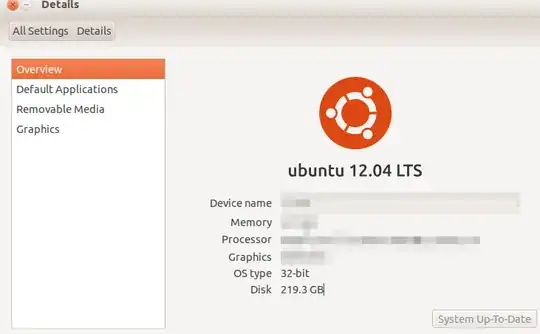I'm running Ubuntu 12.04.*
I'd like to know what point release of 12.04 I'm running (the star). I read the information about LTSEnablementStack and it seems 12.04 has point releases 12.04.0, 12.04.1, 12.04.2, 12.04.3, 12.04.4, 12.04.5 which might differ as much as running a different kernel and xorg server.
I wanted to find out my exact version and the problem is that I get contradictory information.
using lsb_release -a yields 12.04.5
root@box:~# lsb_release -a
No LSB modules are available.
Distributor ID: Ubuntu
Description: Ubuntu 12.04.5 LTS
Release: 12.04
Codename: precise
looking at cat /etc/apt/sources.list says 12.04.1
root@box:~# cat /etc/apt/sources.list | grep cdrom
# deb cdrom:[Ubuntu 12.04.1 LTS _Precise Pangolin_ - Release i386 (20120817.3)]/ precise main restricted
checking the creation date of my root filesystem (to confirm my memmory that I installed that box somewhere in September 2012 (long before 12.04.5) indicates 12.04.1
root@box:~# dumpe2fs /dev/mapper/root -h | grep created
Filesystem created: Fri Sep 21 12:56:19 2012
the GUI is of no help at all and says 12.04 only:

So what point release am I running and why do I see this contradictory information? My kernel is a 3.2 version, which is yet not helping my understanding of the Hardware Enablement Stack Policies and Procedures. Can it be that I had 12.04.1 and accidently changed to 12.04.5? (is this even possible?, yet why do I still run a 3.2 kernel even after apt-get dist-upgrade?)
Or is only lsb_release -a broken and I should file a bug?